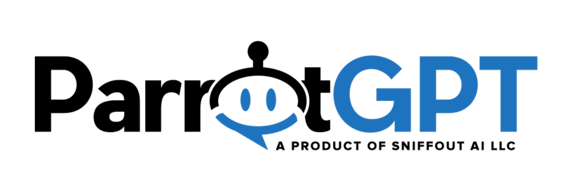We’re now seeing more examples of companies actually reinventing their businesses with AI…
And two new case studies show us exactly what’s possible.
First, OpenAI just published a case study of their work with pharma company Moderna.
In it, they detail how Moderna is rolling out ChatGPT Enterprise to thousands of workers.
(In the process, the company is transforming every aspect of their operations.)
Second, the CEO of project management software leader Asana just shared how his firm is reinventing every business function with AI.
Both offer concrete real-world examples of what winning with AI really looks like.
What can you learn from them?
I got the answer from Marketing AI Institute founder / CEO Paul Roetzer on Episode 95 of The Artificial Intelligence Show.
Moderna creates 750 GPTs, dramatically boosts AI adoption
Moderna, for one, appears to be all-in on AI transformation.
In OpenAI’s case study, Moderna’s CEO writes:
“We believe very profoundly at Moderna that ChatGPT and what OpenAI is doing is going to change the world. We’re looking at every business process—from legal, to research, to manufacturing, to commercial—and thinking about how to redesign them with AI.”
To do that, the company rolled out ChatGPT Enterprise to thousands of employees company-wide. The company’s goal was for these employees to achieve 100% adoption and proficiency in generative AI within six months.
And it appears they’re making headway.
Within two months of ChatGPT Enterprise adoption, they achieved the following:
- Employees created 750 custom GPTs across the company
- 40% of all weekly active users created their own GPTs
- Each user had, on average, 120 conversations with ChatGPT per week
AI is being used for a wide range of tasks at the company. These include: reviewing clinical data, summarizing contracts, and answering employee questions about policies.
“I’m so excited to see this case study,” says Roetzer. “I think it’s a great representation of what organizations should be thinking about and pursuing.”
Asana deploys AI across every major company function
Asana is making major strides with AI, too.
The company is building bots for everything from feedback to reviews to sales to customer experience to content creation, according to CEO and co-founder Dustin Moskovitz.
To do that, the company started empowering everyone from SDRs to product marketers to HR to identify their own high-value use cases for AI. Many were then able to build their own solutions, often without significant technical expertise.
He writes of the effort:
“Internally, reactions to AI ranged from exhilaration to skepticism. We knew we needed to build literacy and hands-on experience to unite everyone around this transformation. So we launched an internal AI community and immersive workshops, encouraging all employees to tinker with the technology. We stood up Slack channels like #ai-adventures-and-explorations, we started evangelizing the power of AI through new internal use cases, and stories of our personal breakthroughs at company all-hands and in team meetings.”
Use cases for AI soon “blossomed in every corner of the company.”
That includes, he writes:
“Our People team built bots for feedback, manager reviews, and self-reflection. Sales & Customer Experience worked on an outbound bot, an Asana product expert, and a call prep bot. Engineering experimented with an API script writer, while Marketing built a content creator and campaign brief bot that was on-message and briefed on our brand design guidelines.”
In the process, teams in every function sped up their work and freed themselves up for higher-value tasks.
The future is AI Emergent, or obsolete
Both Moderna and Asana show that the future lies in becoming an “AI Emergent” company, says Roetzer.
AI Emergent companies are a concept Roetzer first wrote about in mid-2022. In that first post, he wrote:
“With each day that passes, and each advancement in artificial intelligence language and vision technology, it is becoming more apparent that there will be three types of businesses in every industry: AI Native, AI Emergent and Obsolete.”
AI Emergent companies are, ideally, the vast majority of firms today. They are existing businesses that “move quickly to adopt and scale AI across all areas of the organization.”
Key to the concept of becoming AI Emergent, he says, is “viewing it as transformation, not just tool use.”
The process demands full-scale transformation with support from leadership, extensive education and training, and encouragement for employees to explore AI’s possibilities.
“The companies that go in saying, ‘We believe this is going to transform our workforce, our strategies, our technology stack,’ and approach it as such—they’re going to put the right resources, build the right infrastructure, put the right governance in place,” says Roetzer.
“Not just go get five tools to be testing and hope people figure out how to get some value out of the $30 a month license that they’re using.”
Roetzer predicts that most industries have a 3-5 year window of opportunity to figure out how to become AI Emergent before they get disrupted by others who figure out how to adopt and scale AI.
“The companies that probably win here, it’s going to come from the C-suite,” he says. “You’re going to have support from on high, and you’re going to have a leader who has a vision to transform the organization over the next five years.”
Both Moderna and Asana prove the point, he says:
“It’s got to come from the top.”
ParrotGPT can provide AI Chatbot solutions to help companies like Moderna and Asana in their AI transformation journey. ParrotGPT’s ChatGPT Enterprise can empower employees to adopt and scale AI across all areas of their organization, leading to improved efficiencies and new opportunities for growth.
